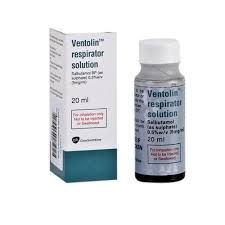Salbutamol Nebuliser Solution is a medication used for the treatment of respiratory conditions such as asthma and chronic obstructive pulmonary disease (COPD). It is specifically designed for use with nebulizers, which convert the liquid medication into a fine mist that can be inhaled directly into the lungs.
Key Features
- Active Ingredient: Each nebuliser solution typically contains salbutamol, a short-acting beta-2 adrenergic agonist.
- Formulation: Available in unit dose vials, commonly containing 2.5 mg or 5 mg of salbutamol per vial.
- Administration: Delivered via nebulization, allowing for effective delivery of the medication to the airways.
Indications
Salbutamol nebuliser solution is indicated for:
- Asthma Management: Provides relief from bronchospasm during acute asthma attacks.
- COPD Treatment: Alleviates symptoms associated with chronic bronchitis and emphysema.
- Severe Wheezing: Effective for treating severe wheezing or other chest conditions when other treatments are insufficient.
Dosage Instructions
- Adults and Children Over 12 Years: The usual starting dose is 2.5 mg (1 vial), which may be repeated every 20 minutes for up to 3 doses as needed. After initial treatment, dosing frequency can be reduced based on symptom improvement.
- Children Aged 5 to 11 Years: The typical dose is 1.25 to 2.5 mg (0.5 to 1 vial) every 20 minutes for the first hour, then adjusted as needed.
- Children Under 5 Years: Generally, the dose is around 1.25 mg (0.5 vial) every 20 minutes for the first hour, with subsequent doses based on clinical response.
Side Effects
Common side effects may include:
- Tremors or shaking
- Nervousness or anxiety
- Headache
- Increased heart rate (tachycardia)
- Dry mouth or throat irritation
Serious side effects are rare but can include severe allergic reactions or worsening of breathing problems.
Precautions
- Contraindications: Not recommended for individuals with known hypersensitivity to salbutamol or any of its components.
- Use with caution in patients with cardiovascular disorders, diabetes, hyperthyroidism, or seizure disorders.
- Always consult a healthcare provider before starting treatment, especially if the patient is pregnant or breastfeeding.

